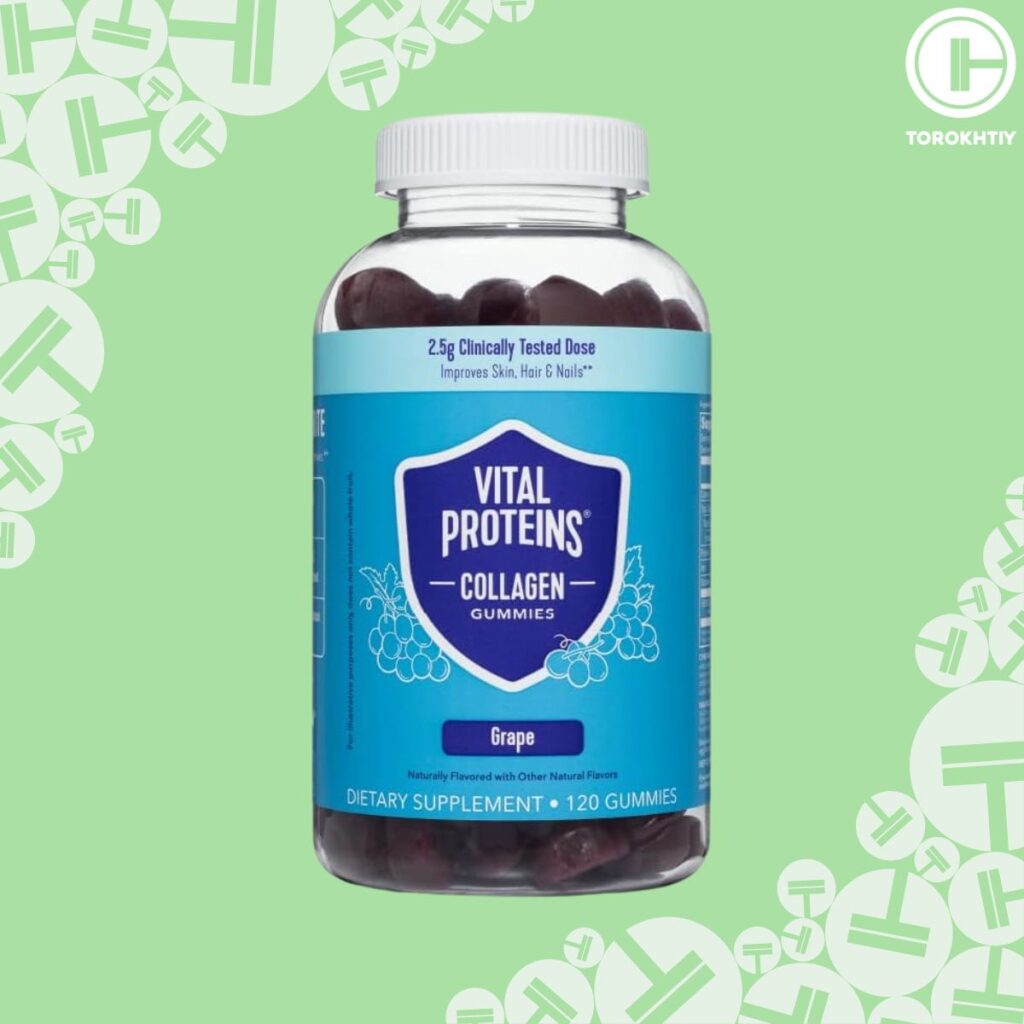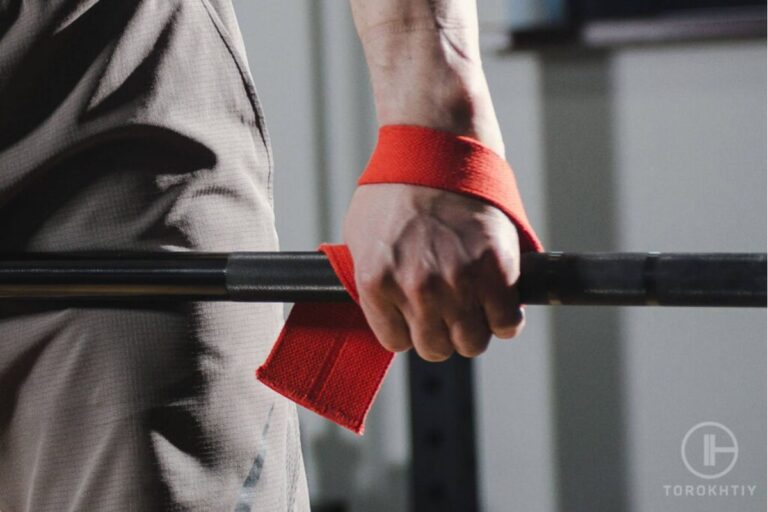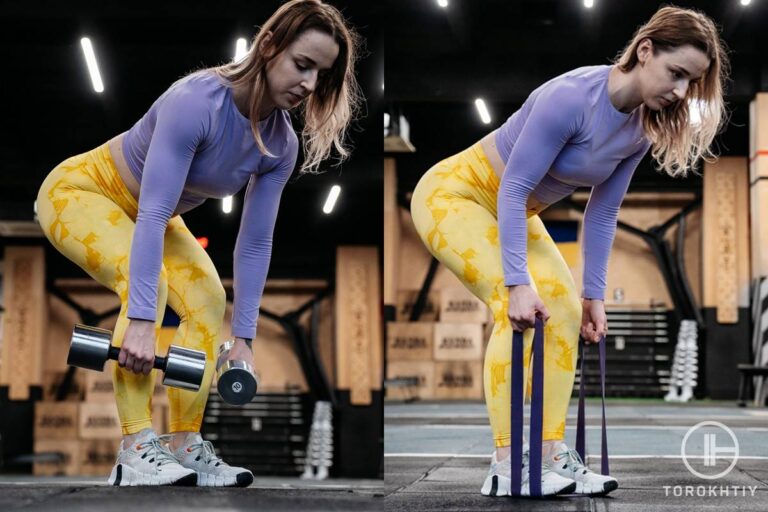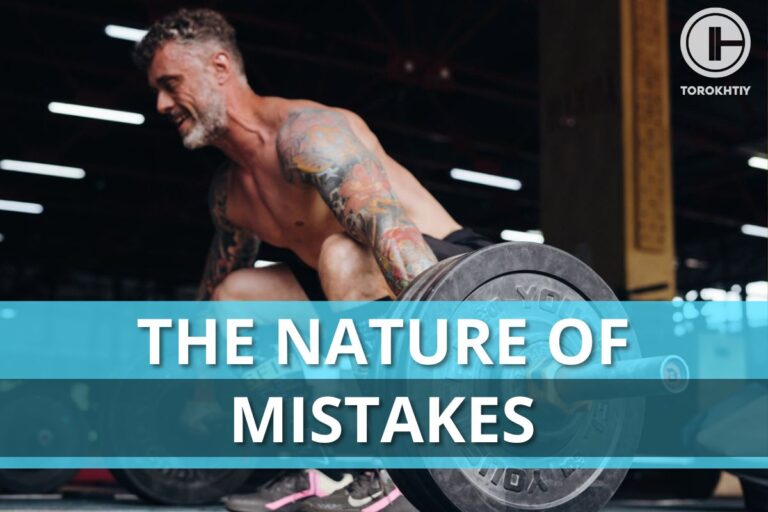How Much Collagen Should You Take Per Day?
If there’s one type of protein that can make a positive difference in your joints, skin, hair and nail health, it has to be collagen. After all, it comprises a third of your body’s protein and three quarters of your skin. But how much collagen per day should you take?
How Much Collagen Per Day? Even though there is no definitive answer to how much collagen per day, as a general guideline, it’s safe to take from 2.5 grams to 15 grams per day. For athletes this can go up to 20 grams per day.

What Is Collagen And What Are Its Benefits In Supplement Form?
Collagen is the most prevalent protein in the body. It is found in tissues such as skin, bones, ligaments, and tendons. Collagen’s unique triple helix structure provides strength and stability essential for structural support and physiological mobility. There are 28 different forms of collagen, each with a unique polypeptide chain.
Type 1 collagen is mostly present in bone, muscle, and connective tissues. It contains non-essential amino acids, e.g., glycine, proline, hydroxyproline, and hydroxylysine. Much is known about these amino acids, but further research on their particular roles is underway.
✅ Collagen Synthesis
Collagen synthesis increases during exercise, correlating with a decrease in plasma glycine levels. It may indicate an increased need for glycine during higher collagen production. This shows that dietary collagen may be beneficial in high-demand settings, such as exercise.
Substances, such as ascorbic acid (vitamin C) and proline, play critical roles in collagen formation. Their presence in cell cultures boosts collagen content. Yet the excess intake in vivo does not show improvements.
Dairy protein amino acids (e.g., proline from casein) are digested and absorbed into connective tissue after resistance exercise. But studies demonstrate that dairy protein amino acids do not promote significant growth in connective tissue protein synthesis rates when compared to placebos. This difference may be attributed to casein’s lower glycine content compared to collagen proteins.
Inflammation disrupts collagen fibrils in the extracellular matrix. On the other hand, glycine, known to decrease inflammatory cell activation, can combat this inflammation. Studies on rodents show that during acute inflammation, glycine improves the characteristics of injured tendons and restores muscular tissue sensitivity to leucine.
✅ Post-Workout Joint Support
Going for collagen daily dose supplementation after exercise can help support the repair/recovery of muscle tissue, and may support joint and ligament health.
Collagen consumption prior to exercise provides an increased availability of amino acids during workouts, which may help specifically with connective tissue building/ recovery. In this way collagen supplementation (along with proper training) may improve connective tissues strength in and around muscles and joints.
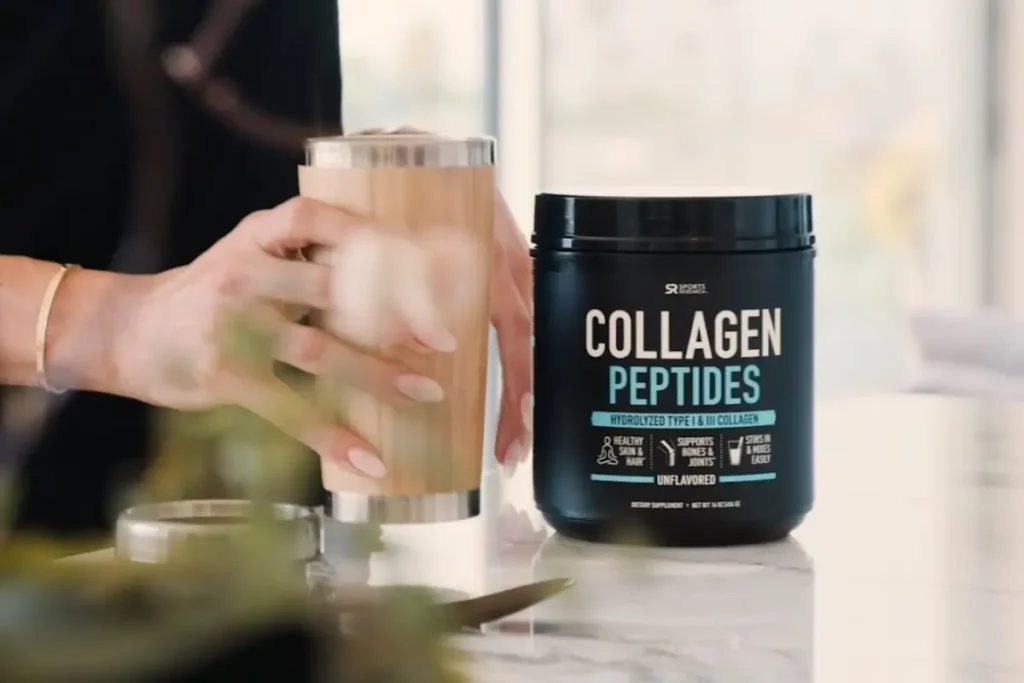
✅ Combat Inflammation
Glycine may have anti-inflammatory qualities, which can help prevent or manage conditions like tendinopathy. Using collagen can improve injured tendons and the reaction of muscle tissue during inflammation. Collagen supplements may also help to decrease inflammation in the body by lowering levels of a protein known as C-reactive protein (CRP).
✅ Tissue Repair and Synthesis
When you exercise, collagen production is upregulated in connective tissues. Adding collagen supplementation to an exercise program could potentially boost the collagen production inside connective tissues by providing the peptides and/or amino acids needed to make collagen.
Collagen promotes:
- Tissue integrity for those with previous connective tissue injury
- Repair/recovery of muscle tissue
Due to these characteristics, collagen supplements may aid in the prevention or treatment of muscle, cartilage, connective, and bone tissue injuries or degenerative illnesses.
✅ Boost Intake of Amino Acids
Collagen for athletes can be a beneficial additional supplement to add for connective tissue healing specifically due to the amino acid distribution and potentially bioactive peptides.
It may aid in the recovery and repair of muscle tissue (though likely not as well as other proteins), and potentially reduces delayed onset muscle soreness.

What Type And How Much Collagen Per Day To Use?
There are several forms of collagen, such as:
- Type I: It is the most prevalent form in the human body and essential for the construction of skin, bones, and other connective tissues.
- Type II: Found mostly in cartilage, which cushions joints and provides flexibility and stability.
- Type III: Like Type I collagen, it is found in organs and skin. It offers support and suppleness to tissues such as muscles, arteries, and organs.
- Type IV: Found in tissue basement membranes, it aids filtration and is necessary for the structural integrity of organs.
- Type V: Found in hair, on cell surfaces, inside muscles, liver, lungs, and placenta. It helps to build cell surfaces and interacts with other forms of collagen.
Each kind of collagen has a distinct structure and function. The type and recommended dose of collagen depends on your physiology and your health goals.
1. For Joint Health Consider Type And Dosage Of Collagen (Hint: UC-II May Be The Best Choice, In A Dosage Of 40mg)
UC-II is an undenatured type II collagen commonly used to enhance joint health. A daily dose of around 40 mg of UC-II can be useful in enhancing joint comfort and flexibility and reducing inflammation. Its effectiveness can be attributed to its capacity to interact with the immune system.
2. For Skin Health and the Fight Against Wrinkles (Type I & III Are Best, Including Verisol With 2500mg Of Collagen)
Type I and III collagen are essential for maintaining skin suppleness, moisture, and structure. Verisol is a bioactive collagen peptide produced from collagen types I and III. It has been studied for its possible benefits in enhancing skin elasticity and decreasing wrinkles, and making your skin look smooth and healthy.
As for how much collagen peptides per day? It has been used in clinical studies at 2500 mg daily, which has been shown to promote collagen metabolism in the skin, resulting in reduced wrinkle development and greater skin suppleness.

3. For Tendons (Type I Mostly, Include 5g Of Tendoforte)
Tendons mainly consist of Type I collagen, which is why consuming collagen supplements may aid in preserving tendon strength and flexibility.
TendoForté is a specific collagen peptide mixture designed to maintain tendon health. It comprises physiologically active peptides that target cells in tendons and ligaments, stimulating their protein manufacturing function.
In a trial of individuals who did calf-strengthening exercises twice a day, those who took 5g of Tendoforte daily saw improvements in tendon and ligament health over a six-month period when compared to those who took a maltodextrin-based placebo. Tendoforte is best taken one hour before exercise, whether it’s physical rehabilitation, daily activities, or regular training.
4. For Athletes 15-20g Of Hydrolyzed Collagen May Be Best (See Info Here)
Because of its broken-down state, hydrolyzed collagen is recommended for joint health and helps reduce activity-related joint pain. If you’re an athlete, you may benefit from consuming 15-20g of hydrolyzed collagen since it includes readily absorbed peptides. Furthermore, collagen may aid in post-exercise muscle recovery and joint health.
Enzymatic hydrolysis is used to diminish the gelling characteristics of hydrolyzed collagen. As a result, it may be readily blended with water and consumed more easily.
A lot of athletes wonder, is 15g to 20g of collagen enough? At present, we do not have enough research to say for sure that collagen supplementation is beneficial, let alone what dose of collagen supplementation is optimal. However, there is some evidence that a daily dose of 15g to 20g of hydrolyzed collagen may be beneficial for connective tissue health/recovery.
Individual variables such as body weight and composition, genetic differences, and dietary habits appear to influence how collagen is absorbed and used.
How To Take Collagen For Different Purposes?
While research on collagen supplements is still going on, you can consume them for various health benefits.
1. For Joints
For conditions like tendinitis or other joint pain, aim for daily collagen consumption. Regular use of collagen supplements may also help manage the pain associated with inflammatory disorders.
While research on collagen’s effects in humans is limited, there is research that it may help prevent and treat tissue injuries and degenerative diseases affecting muscles, tendons, and bones. Studies also show that rehabilitation treatments, including supplementary collagen protein, can speed up recovery.
Furthermore, when paired with targeted workouts (e.g., calf-strengthening exercises), certain collagen peptides have exhibited enhanced functioning and reduced discomfort associated with tendinopathy. Collagen has also been shown in studies to reduce subjective joint pain, inflammation, and muscle damage after severe exercise.
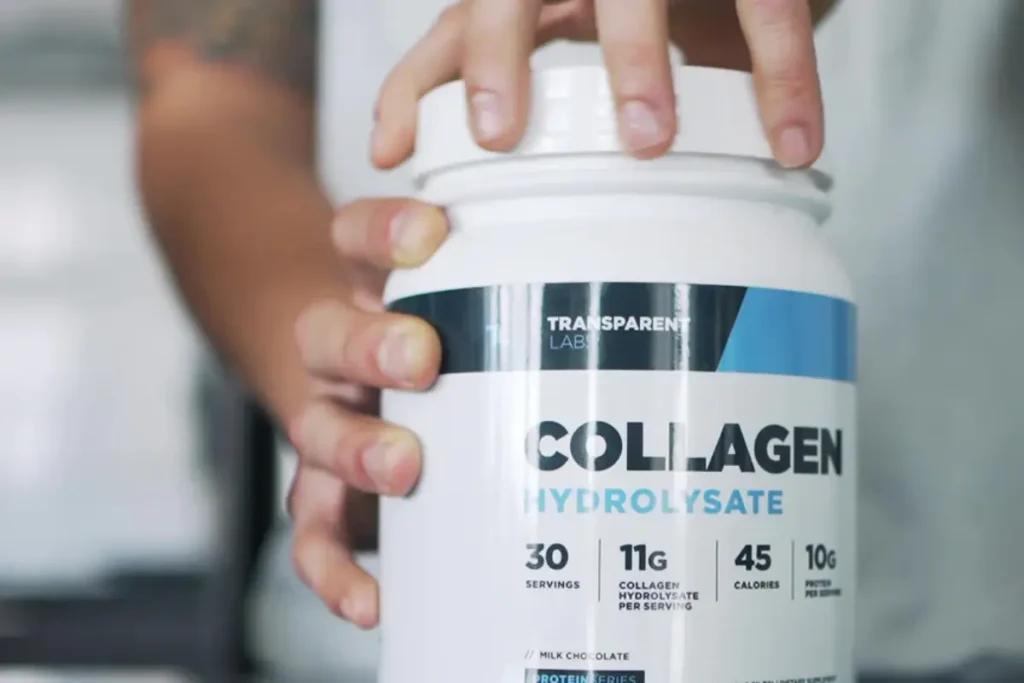
2. For Skin Health
Take collagen supplements 40–60 minutes before exercise for skin tissue restoration. It works well in conjunction with retinoids, retinol, peptides, and vitamin C. Collagen is generally safe with most skincare chemicals and works well with a variety of topical solutions.
3. For Tendon Health
Consume collagen 40–60 minutes before exercise to help with ligament and tendon healing during rehabilitation. Collagen supplementation in an intermittent exercise plan may increase tendon healing, tissue repair, and injury prevention.
4. For Athletic Performance
For athletes, especially those who perform high intensity workouts, regular collagen consumption can help you manage pain from inflammation, reduce activity-related joint discomfort, and possibly prevent degenerative diseases such as osteoarthritis.
- Before Exercise (40–60 minutes before): Collagen supplementation before exercise may help promote collagen synthesis in connective tissues, and may aid tissue repair during rehabilitation.
- Following Exercise (immediately after): Post-exercise consumption assists in muscular tissue regeneration (though less than regular protein) and may lessen delayed-onset muscle pain.
Collagen Powder We Recommend for Skin Health, Joints, Tendons & Athletes
Transparent Labs Collagen Hydrolysate
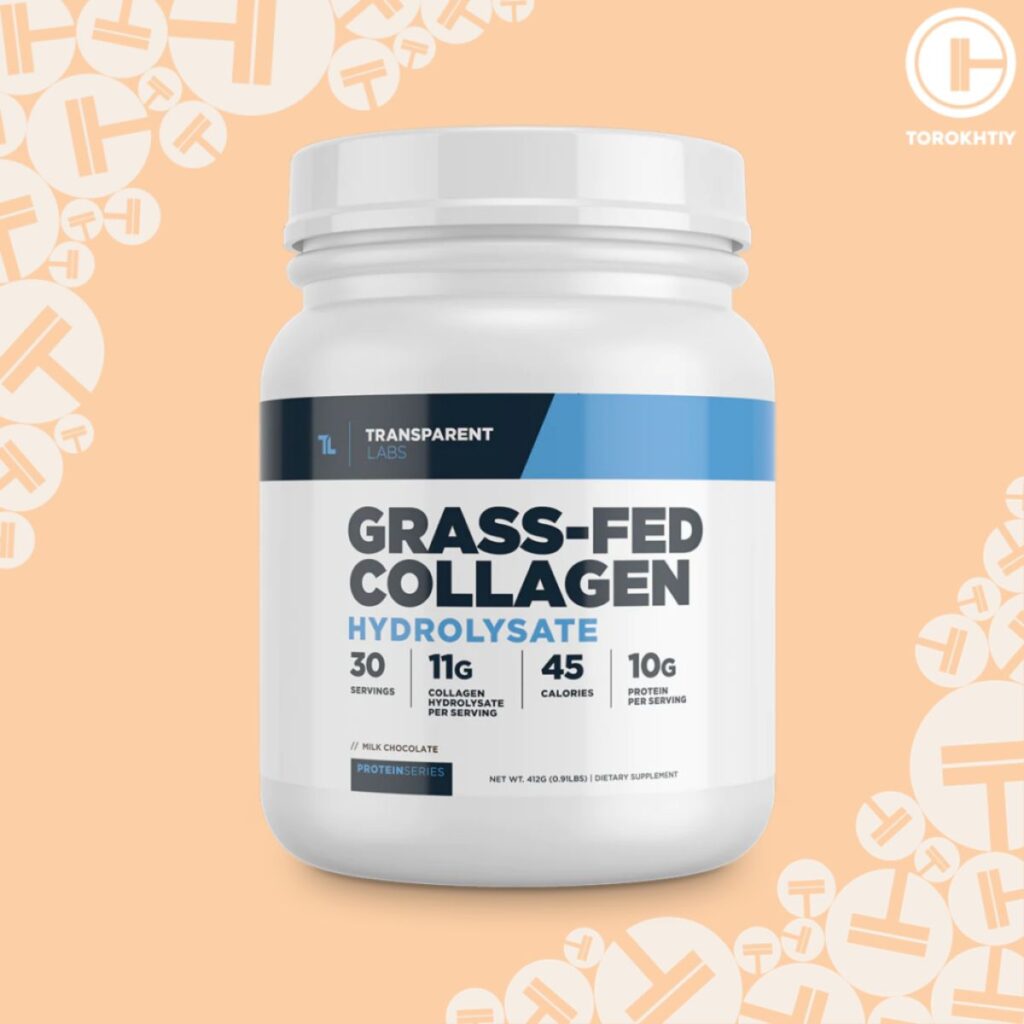
- Collagen Source: Grass-fed Hydrolyzed Bovine Collagen Peptides
- Suitable For Vegans: No
- Serving Size: 11 grams
- Price Per Serving: ~$1.2
- Protein: 10 grams
- Sodium: 35 milligrams
- Fat: 0 grams
- Added Sugar: 0 gram
- Calories Per Serving: 40
- Company Founded: 2015
- Recommended By Athletes: Hafþór Júlíus Björnsson, Terron Beckham, Paul Sklar
Whether you’re an athlete or someone just looking to strengthen your joints, tendons and better your skin health, Transparent Labs Collagen Hydrolysate is your go to supplement.
For athletes who undergo vigorous physical activity, they may benefit from collagen supplementation to increase joint health, and improve recovery.
This is where Transparent Labs Collagen Hydrolysate can deliver bio-peptides to your connective tissues to aid in your overall ligament and joint health.

However, the biggest benefit of hydrolyzed collagen supplementation lies in its ability to minimize skin sagging and skin wrinkles (when taken consistently over time).
As for how many scoops of collagen powder are recommended? One scoop (a single serving) contains around 11 grams of grass-fed hydrolyzed bovine collagen peptides. You can easily mix it with water, milk or even your morning tea or coffee.
Other than that, Transparent Labs Collagen Hydrolysate is free from all artificial stuff. This ensures that you get collagen supplement in its purest form as possible.
Positives:
Could be better:
Collagen Gummies for Skin Health, Elasticity, Anti-Wrinkle Benefits
Vital Proteins Collagen Gummies
- Collagen Source: Grass Fed & Pasture Raised Bovine Collagen Peptides
- Suitable For Vegans: No
- Serving Size: 4 gummies
- Price Per Serving: ~$0.6
- Protein: 3 grams
- Sodium: 20 milligrams
- Fat: 0 grams
- Total Carbohydrates: 9 grams
- Added Sugar: 5 grams
- Calories Per Serving: 50
- Company Founded: 2013
- Recommended By Athletes/Stars: Addison Rae, Jennifer Aniston (more info)
If there’s one company that stands out in terms of offering a wide variety of collagen products, it has to be Vital Proteins. This is one of the collagen supplements that we highly recommend due to its ease of ingestion and high quality grass fed and pasture raised bovine collagen peptides, it is the Vital Proteins Collagen Gummies.
Packed with 8 out of the 9 Essential Amino Acids, it works with the Verisol® Collagen Peptides from bovine to improve your nails, hair and skin.
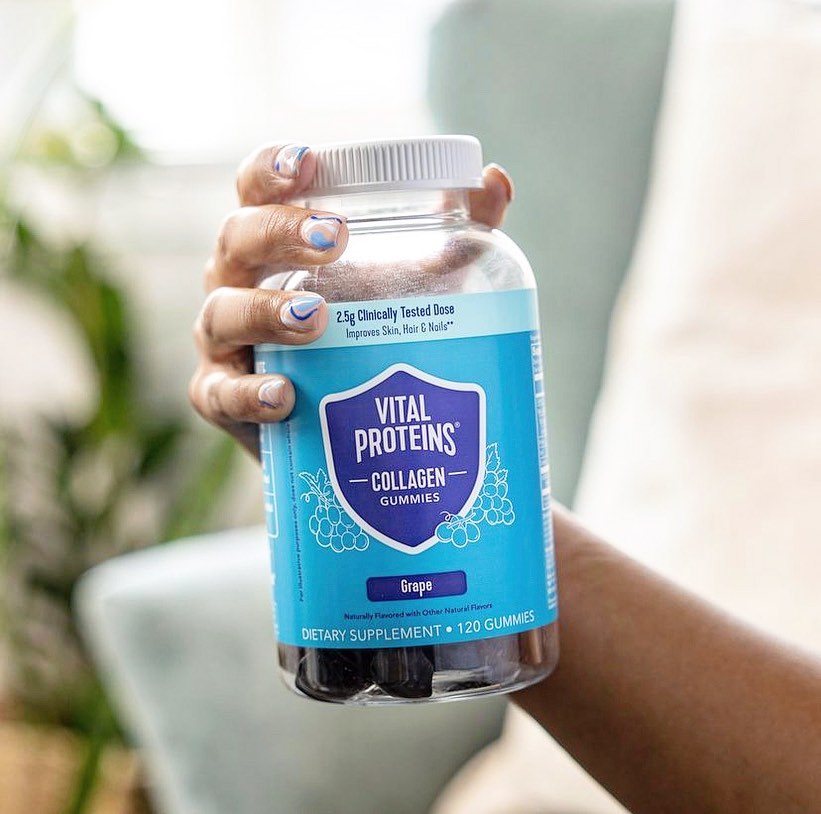
Vital Proteins collagen gummies can also support the overall wellbeing of your ligaments, muscles, joints, and bone structure. After all, collagen is the glue that holds your physical structure together while also maintaining the flexibility and strength of your tissues.
However, if your focus is skin health, elasticity, and anti-wrinkle benefits, then you need to add this supplement to your regular diet.
Positives:
Could be better:
FAQ
What Is A Safe Amount Of Collagen To Take?
If you’re wondering how many mg of collagen per day is safe to take, anywhere from 2.5 grams to 20 grams of collagen dosage per day is considered safe and effective, and for athletes this can go up to 20mg per day.
Can I Take Collagen For A Long Time?
Yes, using collagen supplements is typically safe for most individuals. But consult a healthcare expert for potential interactions and health concerns.
Is 5g Of Collagen Enough?
Yes, 5 grams of collagen every day is sufficient for healthier skin and reduced wrinkles. But if need help with joint or musculoskeletal health, consider at least 10–15 grams per day
Is 20 Grams Of Collagen A Day Too Much?
Not really. Most people should be able to tolerate 20 grams of collagen per day without side effects. Once again, consult your healthcare provider for a customized solution.
Can You Take Too Much Collagen?
Yes, just like every other supplement you can take too much collagen. This is why you should either consult your healthcare professional, or stick to the recommended dosage mentioned on the supplement.
Conclusion
Collagen works like a fabric that keeps our body’s entire structure together. It is also responsible for providing the required flexibility in our joints, skin, bones and muscles. Unfortunately, as we age our body produces less and less collagen. This is where collagen supplementation comes in to save the day.
This is why people looking to start on this supplement often ask how much collagen per day should we take? And the simple answer is, you can take from 2.5 grams to 15 grams per day, and up to 20 grams per day for athletes.
Collagen supplements are mostly taken to prevent the skin, hair and nails from becoming wrinkled and weak. Supplements like Vital Proteins Collagen Gummies can help in enhancing skin elasticity and decreasing wrinkles.
On the other hand athletes, due to their vigorous physical activities, can benefit greatly from collagen supplementation. Transparent Labs Collagen Hydrolysate can aid in joint health, muscle rehabilitation, and performance. More specifically it can help to heal the connective tissues such as tendons and ligaments that are strained during exercise.
So, are you thinking about starting collagen supplements? If so, share your results and experiences in the comments section below, and if you have any queries, please do not hesitate to send us your queries!
Also read:
- Does Collagen Give You Energy
- Best Collagen for Tendons
- Best Collagen Gummies
- Best Collagen Powder
- Best Collagen Supplements for Joints
- Can You Take Too Much Collagen
- Does Collagen Help You Lose Weight
References:
- Cecilia Snyder, MS, RD, “How Much Collagen Should You Take per Day?”, Healthline, https://www.healthline.com/nutrition/how-much-collagen-per-day, (accessed November 25th, 2023)
- Danny Webber & Caraigh McGuinness, “What Are The Benefits Of Collagen Supplements For Athletes?”, NutritionX, https://www.nutritionx.co.uk/nutrition-hub/supplements/collagen-supplements-what-are-the-benefits-for-athletes/, (accessed November 25th, 2023)
- Stephanie S. Gardner, MD, “Health Benefits of Collagen”, https://www.webmd.com/diet/collagen-health-benefits, WebMD, (accessed November 25th, 2023)
- Jan Vincent Beltran, PhD Candidate, “How Much Collagen Should You Take To See Results?”, HealthNews, https://healthnews.com/nutrition/vitamins-and-supplements/how-much-collagen-should-you-take/, (accessed November 25th, 2023)
- Divya Jacob, Pharm. D., “How Much Collagen Should You Take a Day?”, MedicineNet, https://www.medicinenet.com/how_much_collagen_should_you_take_a_day/article.htm, (accessed November 25th, 2023)
Why Trust Us?
With over 20 years in Olympic Weightlifting, our team does its best to provide the audience with ultimate support and meet the needs and requirements of advanced athletes and professional lifters, as well as people who strive to open new opportunities and develop their physical capabilities with us.
By trusting the recommendations of our certified experts in coaching, nutrition, dietology, and sports training programming, as well as scientific consultants, and physiotherapists, we provide you with thorough, well-considered, and scientifically proven content. All the information given in the articles concerning workout programming, separate exercises, and athletic performance, in general, is based on verified data. We ensure that you can rely on our professionals’ pieces of advice and recommendations that can be treated as personalized ones which will benefit you and fully meet your needs.
The product testing process is described in more detail here
Author: David Sasha Schulz
Doctor of Chiropractic, BSc Human Biology, CSCS
Strength coach (CSCS) – 10 years
Sasha is a Chiropractor and Kinesiologist practicing in Kelowna, BC, Canada. He has been practicing Chiropractic since 2019, integrating manual therapy, strength training and programming principles, and nutritional strategies to get his patients optimal results. He currently scratches the competitive itch in fitness, and the occasional endurance race, and plays golf and snowboards for fun. He has an interest in all strength and fitness-related sports.

